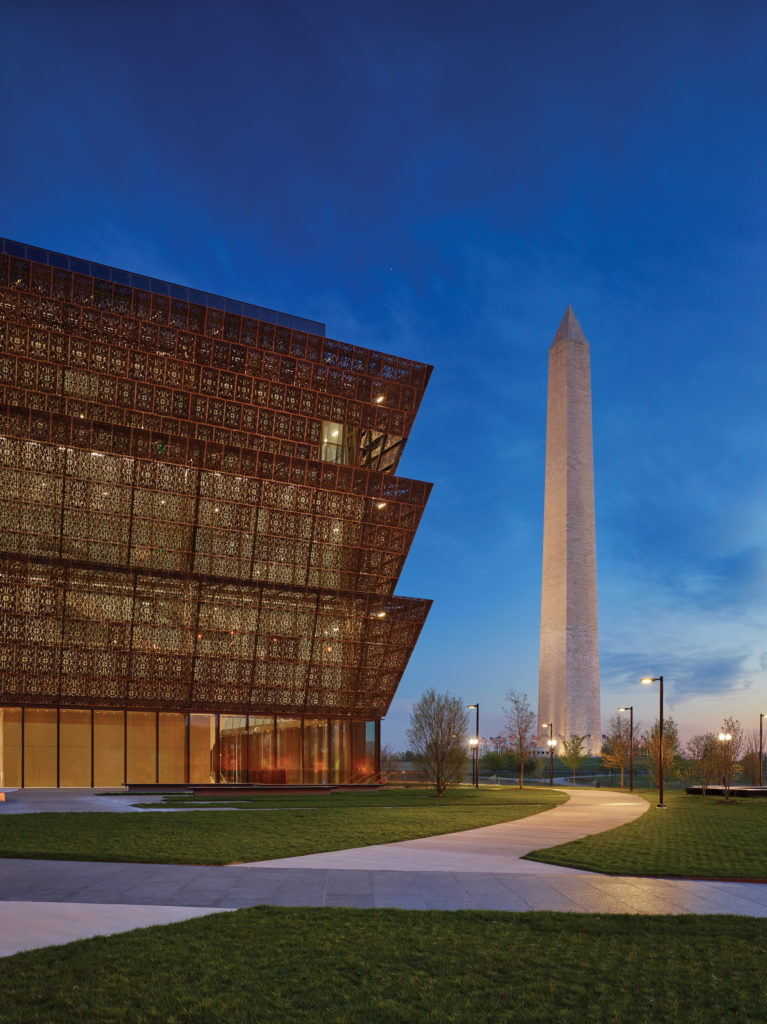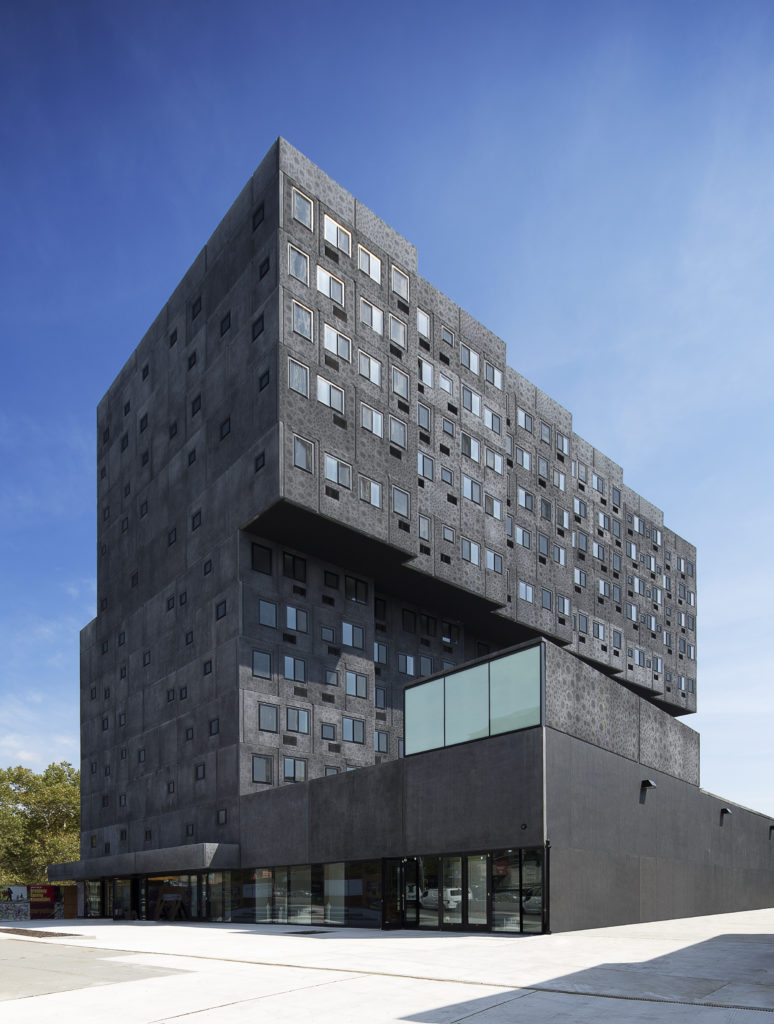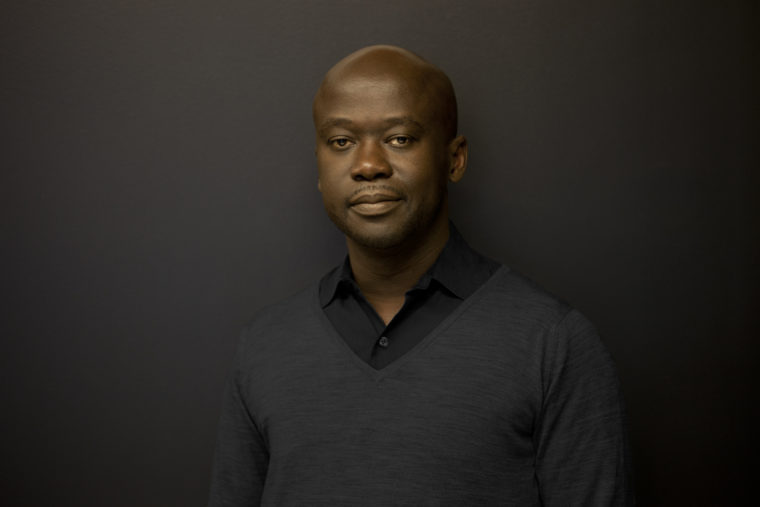The building tells a story.
It begins underground, in somber galleries recounting slavery’s brutality. It spirals upward, through the Civil War and segregation, into sun-drenched spaces recounting the civil rights era and Black Lives Matter. It’s a tale of challenges faced and works yet to be accomplished.
Since opening in 2016, the Smithsonian National Museum of African American History & Culture, designed by British architect Sir David Adjaye, has become arguably the nation’s most prestigious, acclaimed and beloved new structure.

On Oct. 29, Adjaye will receive the 2018 International Humanities Prize from Washington University in St. Louis.
Granted biennially, the prize honors the lifetime work of a noted scholar, writer or artist who has made a significant and sustained contribution to the world of letters or the arts. Previous winners include Orhan Pamuk (2006), Michael Pollan (2008), Francine Prose (2010), Ken Burns (2012), Marjorie Perloff (2014) and Bill T. Jones (2016).
“David Adjaye is one of the most influential architects of his generation, known for major public spaces in North America, Europe and Africa,” said Jean Allman, the J.H. Hexter Professor in the Humanities and director of the Center for the Humanities in Arts & Sciences, which administers the award. “But what sets Adjaye apart from his contemporaries is his humanistic approach to design. His work embodies the human experience in all its trauma, beauty and wonder.”
Laurie Maffly-Kipp, the Archer Alexander Distinguished Professor in the John C. Danforth Center on Religion and Politics, served on the selection committee. She added, “David Adjaye is an architect with artistic and historical inclinations that beckon people inside his structures, but also reveal stories and identities.
“His work on the museum interweaves black cultural modernity in the U.S. with its African precursors in ways that remind us of a complex and divided past but also move us into a common future,” Maffly-Kipp said. “He is able to bring a humanistic vision of space and materiality to life in astounding ways.”
Adjaye will receive the prize, which is accompanied by a $25,000 award, during a public ceremony in Hillman Hall’s Clark-Fox Forum. For more information, visit the Center for the Humanities site.
About Adjaye
Born in Tanzania to Ghanaian parents, Adjaye has won international renown for his sculptural facility, broadly ranging influences, attention to existing contexts and ingenious use of materials. Adjaye Associates, which he founded in 2000, now has offices in London, New York and Accra, and has completed major projects in the United States, United Kingdom, Europe, Africa, Asia and the Middle East.

In addition to the National Museum of African American History & Culture, which was named Cultural Event of the Year by The New York Times, major projects include: the Idea Stores in London (2005), which pioneered a new approach to library services; the Moscow School of Management SKOLKOVO (2010); and the Sugar Hill mixed-use social housing development in New York City’s Harlem (2015). Ongoing projects include a new home for the Studio Museum in Harlem, the recently announced National Cathedral of Ghana in Accra, and the National Holocaust Memorial and Learning Centre in London.
Adjaye is known for his frequent collaborations with contemporary artists on installations and exhibitions. Most notably, he designed the 56th Venice Art Biennale with curator Okwui Enwezor (2015). The Upper Room, featuring 13 paintings by Chris Ofili (2002), is now part of the permanent collection of Tate Britain. Other examples include Within Reach, a second installation with Ofili in the British pavilion at the Venice Biennale (2003) and the Thyssen-Bornemisza Art for the 21st Century Pavilion, which was designed to show Your Black Horizon, a projection work by Olafur Eliasson, at the 2005 Venice Biennale.
Adjaye’s numerous honors include the 2011 Design Miami/Artist of the Year, the Wall Street Journal’s 2013 Innovator Award and the 2016 Panerai London Design Medal from the London Design Festival. In 2017, Adjaye received a knighthood from Queen Elizabeth II for services to architecture and was recognized as one of the 100 most influential people of the year by Time magazine.
